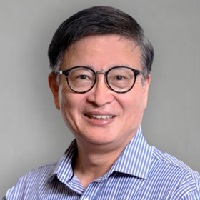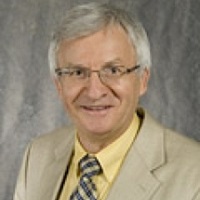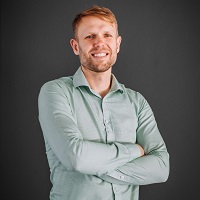ICMIMT 2020 Keynote Speakers
KEYNOTE SPEAKER IN ICMIMT

Fellow of IEEE, IISE, ASME, HKIE, IET and CILT
Prof. George Q. Huang, The Hong Kong Polytechnic University, China
George Q. Huang joined Department of Industrial and Systems Engineering at The Hong Kong Polytechnic University as Chair Professor of Smart Manufacturing and Director of PolyU Research Institute of Advanced Manufacturing (RIAM). George graduated from Southeast University (China) with BEng and Cardiff University (UK) with PhD degrees respectively. George has been working on smart manufacturing ever since his PhD study and continued and expanded into smart logistics and smart construction with substantial research grants from governments and industries. He published extensively in the related fields and his works have been widely cited with the research community. He served as senior / department / area / regional / associate editors and on editorial boards of more than a dozen of reputable journals. George is Chartered Engineer (CEng), Fellow of IEEE, ASME, IISE, IET, CILT and HKIE.
Speech Title: Cyber-Physical Internet (CPI) for Cross-Border Logistics of Manufactured Products
Abstract: The vision of “Cyber-Physical Internet (CPI)” is to establish a new paradigm for sending and receiving manufactured goods just like sending and receiving instant messages over the internet using online chatting platforms. Four innovations are critical to achieve this ultimate vision: (1) digitization architecture for entangling the flows of information and materials into one flow of cyber-physical objects for manufacturing and logistics operations; (2) network services for configuring local aera network (LAN), wide area network (WAN) and catchment area network (CAN); (3) value mechanisms to motivate and facilitate participation and collaboration between multiple stakeholders including shippers, carriers, forwarders; and (4) decision analytics for synchronized logistics planning, scheduling and execution. These innovations are based upon some fundamental breakthroughs of CPI routers and TCP/PIP protocols that are yet to be developed.

Prof. Andrew Kusiak, The University of Iowa, USA
Dr. Andrew Kusiak is a Professor in the Department of Industrial and Systems Engineering at The University of Iowa, Iowa City. He has chaired two departments, Industrial Engineering, and Mechanical and Industrial Engineering. His current research interests include applications of computational intelligence and big data in manufacturing, automation, renewable energy, sustainability, and healthcare. He has authored or coauthored numerous books and hundreds of technical papers published in journals sponsored by professional societies, such as the Association for the Advancement of Artificial Intelligence, American Society of Mechanical Engineers, Institute of Industrial and Systems Engineers, Institute of Electrical and Electronics Engineers, and other societies. He speaks frequently at international meetings, conducts professional seminars, and consults for industrial corporations. Dr. Kusiak has served in elected professional society positions as well as editorial boards of over fifty journals, including editor positions of five different IEEE Transactions.
Professor Kusiak is a Fellow of the Institute of Industrial and Systems Engineers and the Editor-in-Chief of the Journal of Intelligent Manufacturing.

Prof. Thorsten Becker, University of Cape Town, South Africa
Prof. Thorsten Becker is an Professor in the Department of Mechanical Engineering at the University of Cape Town, where he also serves as Director of the Centre for Materials Engineering. He holds a concurrent appointment as Extraordinary Professor at Stellenbosch University, and Visiting Researcher at the Nelson Mandela University.His research addresses structural integrity, focusing on fatigue, fracture, and creep. Employing advanced methodologies such as digital image and volume correlation, high-resolution microscopy, and modelling approaches, his work extracts engineering-relevant parameters vital to structural integrity assessments. An avid proponent of additive manufacturing of metals, particularly for high-temperature applications, Prof. Becker explores intrinsic process attributes and their effects on structural performance. His work is conducted in partnership with local and international research institutions and industries. He regularly contributes to professional bodies, bringing an applied focus to his theoretical investigations. Prof. Becker’s research has yielded numerous publications—many in high-impact venues—and is well cited across the fields of structural integrity and additive manufacturing.